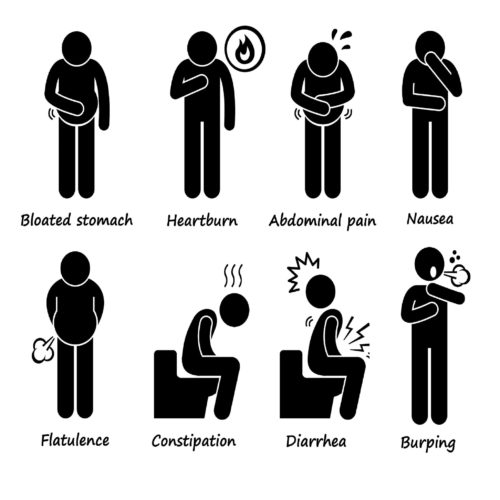
You have an inordinate amount of gas and foul odor for one or more days, you keep belching with no end in sight, and you get tired. After about the second or third day, you get a migraine. The evening before your migraine, you get unusually tired and fall asleep much earlier than normal. Why do you have these symptoms and what is going on?
Shed light on your symptoms by choosing the right test

In order to alleviate symptoms, you should of course not consume any foods that you are allergic to or have an intolerance to. There is a significant difference between an intolerance and allergy. Have you taken an allergy test that details which foods you may be allergic to? This would be the regular arm or back pin-prick test. However, there are specific tests available now that help you discover food intolerance and not just food allergies. These will highlight offending foods, whose symptoms that take longer to develop inside your intestines. It shows which foods you may react to over a 2-3 day period and this can be done by a simple blood test.
Identify stomach issues that may cause migraine symptoms
Whether or not your migraines are cuased by stomach issues, chances are good that there is something going on in your stomach. You should try to find out what it is in order to alleviate your migraine symptoms.
- It is not unusual for migraine sufferers to have parasites and yeast
- These can contribute to “leaky gut” and SIBO which cause significant discomfort with excess bloating and gas, in addition to abdominal pain
- You may lack enzymes that help break down certain foods
These could be underlying conditions for your migraine episodes or they might be symptoms of an underlying cause.
With test results in hand
Once you take the food intolerance test, it is important to stay away from all of those items you are intolerant of for up to for 3-6 months. To the extent you have the listed stomach symptoms you should try and avoid sugars and carbohydrates as much as possible. These tend to help bad bacteria grow in your stomach. Even if you are non-reactive to dairy, for example, it might still be a good idea to this group. Dairy has been shown to cause issues for migraine sufferers.
It is also worth considering that some of us could be intolerant of food oils, such as canola oil. Its use is more common than we think and the majority of canola is genetically modified. Canola is used for many “so called” healthy products. Interestingly, it is endorsed by organizations such as the American Heart Association. It is important to remain vigilant and carefully screen food labels for traces of canola or other offending oils.
Probiotics to nurture good bacteria
Lastly, if you suspect stomach issues, a non-dairy probiotic might be a good idea to rebuild the good bacteria in your stomach. Probiotics are not all uniform and, therefore, proper research is important to help find the right one for you.
Stomach symptoms can be related to food intolerance. And food intolerance might be behind our migraine episodes. Therefore, finding out what is going on in our stomachs could lead to fewer symptoms and resulting migraines.
